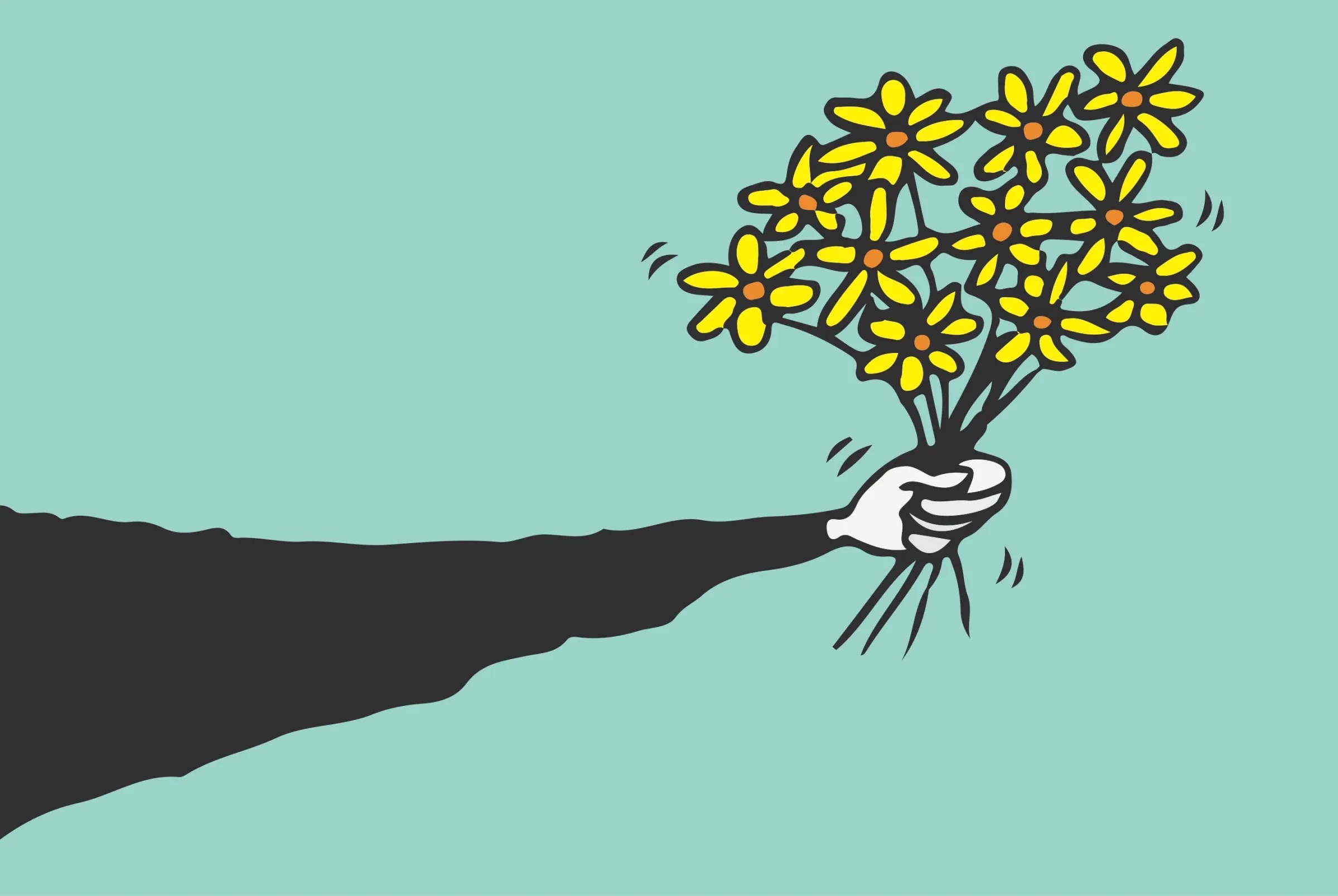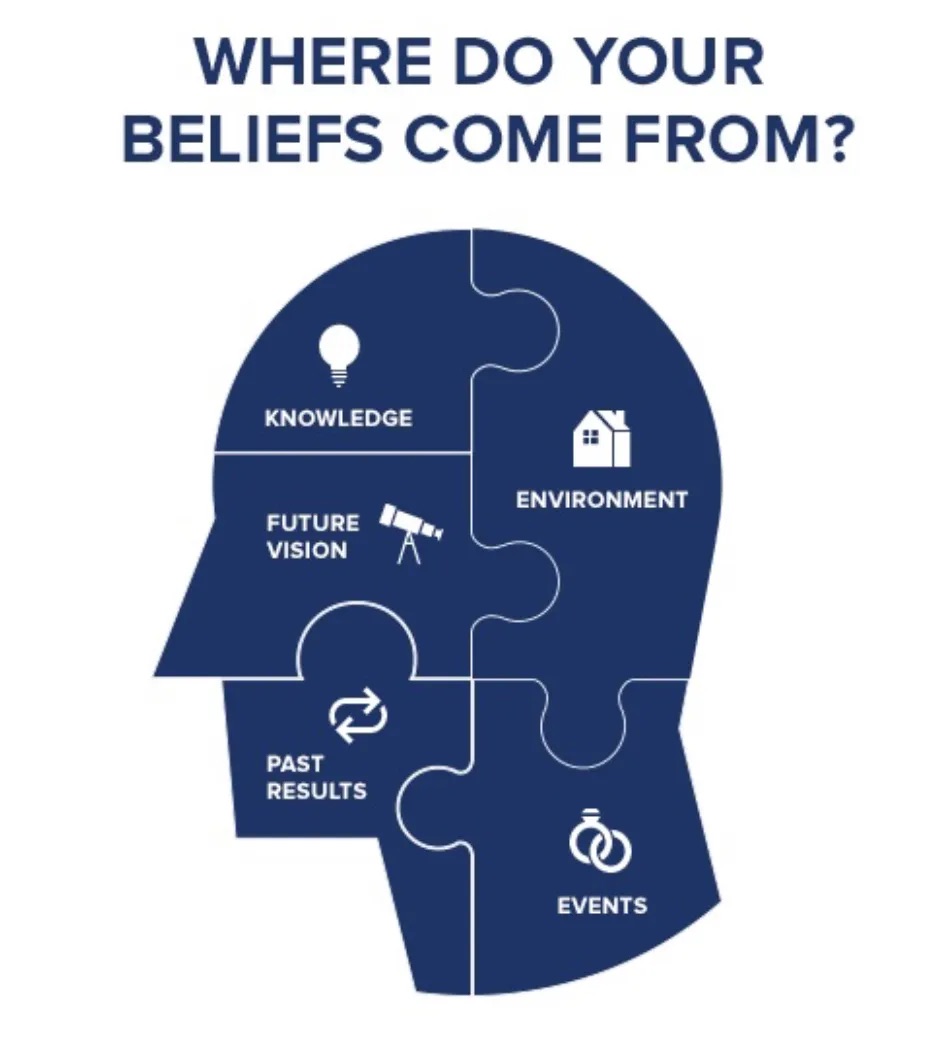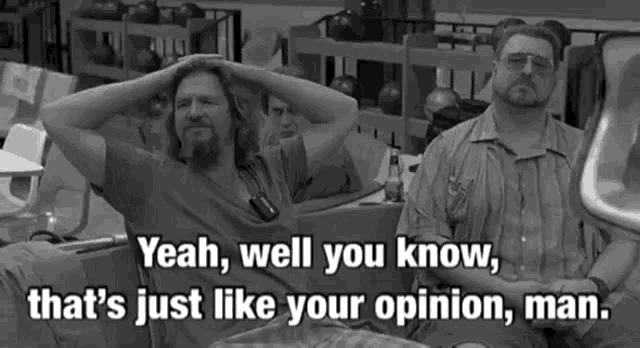The Importance Of An Apology | The Benefits Of Saying I'm Sorry

Why it's so important to admit we're wrong. Learning to apologize can lead to a better understanding of yourself and those around you. 05.20.24
Nobody Likes To Be Told They're Wrong
Nobody likes to be told they're wrong. We pride ourselves in our opinions, because they're an extension of our identity and who we are. We want to be right, because it speaks
of our intelligence and our ability to perceive the world around us. When we mistake our judgment, we start to question ourselves and what we actually know. We feel naive and
vulnerable. There's a negative connotation that comes along with it; A fear of embarrassment. Well as it turns out, there's nothing to be embarrased of, because there is no
absolute right or wrong. Everything in life is subjective.
Our Opinions Are Different Because Everything Is Subjective
There are certain things in life we all can agree on. Like Mondays should be optional, naps mandatory, and nothing beats a sunny afternoon on the beach. But maybe the last ones not true for you. Maybe you don't really like going to the beach at all. Maybe the beach gives you anxiety, and you can't stand being there. But how can this be true? What could be better than baking under the sun and an inch of coconut oil? Well this is precisely why life is a big ol' puddle of subjectivity. We all will have different opinions based on where we came from.
We Are A Product Of Our Environment
The environment we grew up in played a major role in shaping our values and opinions. Our family, friends, and culture all were external factors that made us into who we are. If you grew up in a Korean household as an only child, you will be much different than the person from a Canadian household with ten siblings. The chances of two people sharing all of the same ideologies is pretty rare. There will always be something to disagree on. So if we all have different ideas of what is right, and only one person can be right in the situation, then who is? How can we identify when we are wrong and someone else is right?
Using Empathy To Identify Right From Wrong
As kids we're taught the golden rule to treat others the way you'd like to be treated. We're told to "put ourselves in their shoes and see how that makes us feel". Both of these statements are forcing us to employ empathy.By putting yourself in someone else's shoes, or asking yourself how would you like to be treated, you are empathizing with that other person's feelings. If we have offended someone and upset their feelings, then chances are we are probably wrong in how we handled the situation. Something could have been extremely important to you, but for me it was meaningless.
I tell you I'd rather stay home than go to this event with you. Your feelings wind up getting hurt because this event is a pivotal moment in your career. But you didn't tell me that. You just assumed I would know. It's still early days in our relationship and we haven't had this conversation yet. You storm out of the house extremely upset. Upon your return I ask you if we can talk. I apologize for upsetting you earlier and you proceed to explain to me why that event meant so much to you. Had I known I would've gone without question. But I didn't know because it had never been brought up before. Moving forward we recognize the importance of communicating our feelings, wants, and desires. It was all a complete misunderstanding.
The Benefits Of Admitting We're Wrong & Apologizing
1. Resolves misunderstandings
2. Apologies can lead to a better understanding of one another
3. Form deeper connections and reliability
4. Encourages trust in decision making
Resolves Misunderstandings
It gives us a chance to explain ourselves and give light to the situation. It could have all been one big misunderstanding but you would never have known that unless you started the conversation. The apology is a means of starting that.Small Arguments Can Make Big Waves When Unresolved
When little issues go unresolved they start to bleed into everything else. The simple misunderstanding has now become a wedge driven between us. If we are in a work environment then chances are our productivity levels will decrease. Our ability to work as a team will suffer. In romantic setting, these small blips can lead to nit-picking on your partner. If your partner tends to avoid conflict, they may become passive aggressive. This can lead to even more confusion and frustration ultimately leading to a full on communication breakdown.Apologies Can Lead To A Better Understanding Of One Another
When we admit we're wrong and say I'm sorry, it opens up conversation. I didn't know you had trauma linked back to your childhood, and whatever I said triggered it. I never would have said that otherwise. In these situations we end up learning more about our partner's and who they are, and more specifically, how they think. We gain a better understanding of our partner as a person and their history.
Saying I'm Sorry Helps Form Deeper Connections and Reliability
By admitting we are wrong, we are showing that we can be honest and vulnerable. This helps drive conversations and unveil deeper feelings of why we feel a certain way. It gives our partner a chance to have a closer look at who we are and how we perceive the world around us. Again, it brings up things that we never thought to bring up before. We share our emotions and in return form a deeper connection. This in turn shows that we can be more reliable.Encourages Trust In Decision Making
If you plan on being together for the long run then this it's 100% necessary. We are going to have to come together to make decisions that will ultimately affect both of our lives. Therefore if I can see that you are willing to admit when your opinion or ideas weren't the best fit, and I too can admit this, then moving forward we will have more trust in our decisions, and our bond will only blossom and grow.
It's Okay To Not Agree On Everything
We don't need to agree all the time. But what we do need is to be able to see where the other person is coming from and show some empathy. Trying to understand why you might feel that way. Why are you reacting like this? Why is this so important to you when it's insignificant to me. We use disagreements as a means to learn about the people who fill our lives and who they are. Not agreeing on things is a part of life. How we react to those disagreements is everything. We can shrug them off and ignore them, or we can use them as a chance to learn and grow. A chance to start a conversation.After being together with my now wife for the past ten years, it has taken a lot of trial and error for this to be fully understood. Being the stubborn person I am, it can be brutally painful to acknowledge I'm wrong. Over time though, I've wiped away that negative connotation and have been able to apologize when I can see that I've clearly hurt her feelings. She comes from a completely different country and culture, and I have to remind myself that I can't expect her to always see things as I do. It'd be unfair to do so. We have to be able to admit we are wrong and use it as a platform for growth. By showing you are willing to try and understand someone else's feelings, you strengthen the bond you share.
So drop that ego, go apologize, and cultivate that growth.